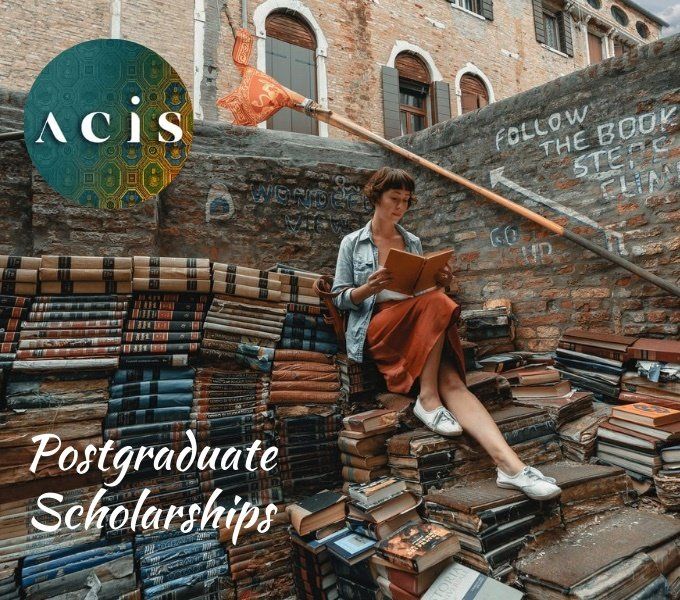ACIS Research Groups - Successful Applicants!
ACIS is delighted to announce the successful applicants for its Research Groups for the period 2022-2024 in the categories: History and Social Science; Visual and Performance Studies; and Literature, Culture, Communication
In 2017, ACIS established three broad Research Groups to cover the variety of disciplines Italianists in Australasia engage in. These groups are: History and Social Science (HSS); Visual and Performance Studies (VPS); and Language, Culture, and Communication (LCC). The aim of these research groups is to organize research-related initiatives – workshops and seminars, small pilot projects, visits of overseas scholars, collaboration with Italy-oriented institutions – on key themes within their fields of interest. The initiatives are intended to provide an opportunity for scholars from the many fields under the broad heading of ‘Italian Studies’ to come together to discuss research interests and projects. In particular we hope it will offer regular opportunities for postgraduates and early career researchers to present their work and exchange ideas.
This year's call for applications to head a two-year research programme of activities was well subscribed, with many wonderful projects proposed. The decision of the adjudication committee was not easy, but three exciting projects were awarded funding in this round:
History and Social Science:
"Reframing, Revisiting or Removing: Making Fascism Visible in Contemporary Italy"
Debates in Italy on the physical remnants of fascism and imperialism that have intermittently surfaced in recent decades have been reinvigorated over the past couple of years in the context of international controversies over the fate of monuments to discredited figures and ideologies. In Italy, such controversies have historically not resulted in a concerted strategy to deal with painful memories, as public opinion moved on, marginalised the challenges, or coalesced around a deliberately ambiguous or short-term response.
The response (and lack of response) to the monuments, statues, landmarks or street names that reference or even celebrate Italy’s fascist and imperial past, demonstrates how hard it is for the country to separate the management of its fascist legacies from wider discourses on the nation’s history, where group memories, identities and politics intersect. The project will investigate this nexus.
Project Coordinators:
Giacomo Lichtner (Victoria University of Wellington)
Sally Hill (Victoria University of Wellington)
__________
Visual and Performance Studies:
"Italian Cinemas in Melbourne: From Post War Migration to The Movie Show (SBS)"
This project aims to provide a comprehensive overview of ways in which Italian language cinemas contributed to the reception and distribution of Italian cinema in Melbourne from the Post-WWII and mass migration periods until the advent of SBS in the late 1970s.
Although Italian language cinemas were made redundant with the institution of SBS and the digital and streaming formats that followed, for great number of Italians migrating to Australia in the early 1950s, they represented an important way to connect to their cultural heritage while also providing significant social and recreational opportunities. In the pre SBS period various Melbourne cinemas and improvised screening spaces were dedicated to screening films, and filmed sporting events, exclusively in Italian language - targeting the city’s large Italian speaking population. Consequently, the Italian language cinemas contributed to reinforcing the developing multi-culturalism of Melbourne.
The project will analyse the films screened, source primary accounts of their reception, and articulate an understanding of the curatorial aspects of their distribution and exhibition. This study will also help to ascertain the influence that the presence of Italian cinemas had on Italian and/or Australian filmmakers and the wider Melbourne community. To this end, the study will include analysis of media reports, artefacts related to the years of Italian cinemas in Melbourne such as posters, advertisements, foyer information and photographs, as well as personal recollections of members of the Italian language cinema-going communities.
Project coordinators:
Mark Nicholls (University of Melbourne)
Elisabetta Ferrari (University of Melbourne)
Santo Cilauro (Working Dog Productions)
Susanna Scarparo (University of Sydney)
__________
Literature, Culture, Communication:
"From Lockdown to Liberation: Invisible Cities in Pandemic Times. An Ekphrastic and Multimodal Research Group Project"
Using an interdisciplinary and multimodal theoretical framework (adaptation studies, digital humanities, and graphic design) and adopting Calvino’s thematic framework in Invisible Cities, this project explores the emotional and narrative links between crisis and creativity and between liminality and liberation.
Italian nationals living in 30 countries will be invited to submit an image of their city in lockdown along with a 280-word tweet that describes the image and a title that uses one of the themes used by Calvino in Invisible Cities (cities and memory; cities and desire; cities and signs, thin cities, trading cities; cities and eyes; cities and names; cities and the dead; cities and the sky; continuous cities; hidden cities). The winning entries will then be digitally augmented to liberate each city from the paralysis of lockdown by bringing it back in time or into the future. The corpus of reflections generated by participants and the research group will be analysed to shed light on the processes of multimodal memory and storytelling.
Project coordinators:
Marco Sonzogni (Victoria University of Wellington)
Daniel Brown (Victoria University of Wellington)
Sydney Shep (Victoria University of Wellington)
Yanyuan Liang (Victoria University of Wellington)
Alice Charles (Victoria University of Wellington)
Julia Pelosi-Thorpe (University of Melbourne)
We wish all of these projects all the very best, and look forward to reporting on their various and exciting outcomes.








